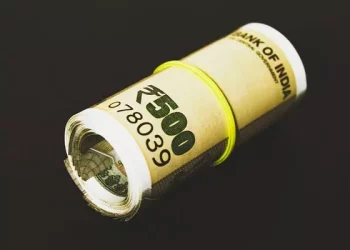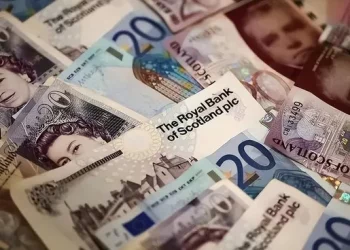Currency exchange is a crucial component of international finance, commerce, and travel. When people travel from one country to another or when businesses engage in cross-border transactions, the need to convert one currency into another arises. Exchange rates determine how much of one currency you get in return for another. In this context, we will explore the exchange rate between the Thai Baht (THB) and the Malaysian Ringgit (MYR), focusing specifically on the value of 100 Thai Baht in Malaysian Ringgit.
Understanding the Thai Baht and Malaysian Ringgit
The Thai Baht (THB) is the official currency of Thailand and is widely used in everyday transactions, ranging from food and transport to housing and investments. It is issued and regulated by the Bank of Thailand. On the other hand, the Malaysian Ringgit (MYR), the official currency of Malaysia, is overseen by Bank Negara Malaysia. Both countries have strong trade and tourism ties, making the exchange rate between their currencies particularly relevant to individuals and businesses alike.
Key Characteristics of THB and MYR:
Thai Baht (THB):
- Symbol: ฿
- Code: THB
- Central Bank: Bank of Thailand
Malaysian Ringgit (MYR):
- Symbol: RM
- Code: MYR
- Central Bank: Bank Negara Malaysia
Understanding the basic features of both currencies helps in interpreting exchange rate movements and their broader implications.
Current Exchange Rate Overview
As of the latest available data, the exchange rate for 100 Thai Baht is approximately equivalent to 13.00 to 13.50 Malaysian Ringgit, depending on market fluctuations and service provider fees. This conversion rate can change daily based on various economic factors such as interest rates, inflation, geopolitical events, and demand and supply dynamics in the currency markets.
It is important to note that different money changers, banks, and online platforms might offer slightly different rates due to commission fees or administrative charges. Always compare the rates from multiple sources before making a currency exchange.
Factors Influencing the THB to MYR Exchange Rate
Several factors can influence the exchange rate between the Thai Baht and the Malaysian Ringgit. Understanding these factors can help individuals and businesses make informed decisions when exchanging money or planning financial operations involving these two currencies.
1. Economic Indicators
Economic indicators such as GDP growth, unemployment rates, and inflation significantly impact a country’s currency value. For instance, if Thailand’s economy is performing strongly relative to Malaysia’s, the Baht may appreciate against the Ringgit.
2. Interest Rates
Interest rates set by the central banks play a pivotal role. Higher interest rates in Thailand compared to Malaysia may attract foreign investors seeking better returns, thereby increasing the demand for Baht and pushing its value up relative to the Ringgit.
3. Political Stability and Governance
Investors and tourists are more likely to trust stable political environments. Political uncertainty or unrest in either Thailand or Malaysia could influence investor confidence and consequently affect the value of their respective currencies.
4. Trade Balance
The trade relationship between Thailand and Malaysia, including the volume and balance of trade, can influence their exchange rate. A trade surplus (more exports than imports) typically strengthens a country’s currency.
5. Tourism and Remittances
Both Thailand and Malaysia are major tourist destinations. Changes in tourism flows and remittances can influence currency supply and demand, thereby affecting exchange rates.
Methods to Convert Thai Baht to Malaysian Ringgit
There are several reliable ways to convert Thai Baht into Malaysian Ringgit. Each method comes with its own advantages and considerations.
1. Banks and Financial Institutions
Most commercial banks in Thailand and Malaysia provide currency exchange services. While they are generally trustworthy and secure, their rates may not always be the most competitive due to added fees or conservative exchange margins.
2. Currency Exchange Booths
Popular in airports, malls, and border towns, currency exchange booths often offer competitive rates. However, the quality of service and transparency may vary, so it is wise to compare multiple booths before finalizing a transaction.
3. Online Platforms and Apps
Digital platforms and mobile applications such as Wise, Revolut, and XE provide real-time exchange rate tracking and low-cost conversions. These platforms are convenient, often more transparent, and ideal for tech-savvy users.
4. ATMs
Using international debit or credit cards at ATMs in Malaysia to withdraw Ringgit directly can be convenient. However, fees and conversion rates can vary significantly depending on the issuing bank.
Practical Examples of Exchange Rate Conversion
To help you understand how the exchange rate translates into real-life value, here are a few practical examples based on the approximate exchange rate of 100 Thai Baht to 13.20 Malaysian Ringgit:
Scenario 1: Shopping
1,000 THB ≈ 132 MYR
If you’re shopping in Malaysia, this can help you budget accordingly.
Scenario 2: Hotel Booking
5,000 THB ≈ 660 MYR
Useful for planning accommodation expenses during your travel.
Scenario 3: Business Transaction
50,000 THB ≈ 6,600 MYR
Helps businesses forecast expenses and revenue more effectively.
Tips for Getting the Best Exchange Rate
Getting the best exchange rate for your money is important, especially for larger transactions. Here are some tips to help you make the most of your conversion:
- Compare Multiple Sources: Always check rates from banks, exchange booths, and online services.
- Avoid Airport Exchanges: Rates at airports tend to be less favorable due to higher overhead costs.
- Watch Market Trends: Monitor economic news and forex charts to understand when to convert.
- Use Low-Fee Platforms: Opt for platforms that offer low or no conversion fees.
- Exchange Larger Amounts: Some providers offer better rates for higher amounts.
Historical Trends and Exchange Rate Volatility
Exchange rates between the Thai Baht and Malaysian Ringgit have shown fluctuations over the past decade. Global financial crises, regional economic developments, and domestic fiscal policies have all played roles in influencing these shifts.
For example, during times of global uncertainty, investors often pull money out of emerging markets, causing currency depreciation. In contrast, periods of economic recovery or growth can strengthen local currencies.
Historical Averages:
- 2015-2017: 100 THB ranged from 11.80 MYR to 12.50 MYR
- 2018-2020: Rates fluctuated more widely, peaking above 13.60 MYR
- 2021-Present: The average rate remains between 12.90 to 13.50 MYR
These trends underline the importance of timing and market awareness when exchanging currency.
Impact of Currency Exchange on Travelers and Businesses
Both travelers and businesses are directly affected by the exchange rate. A favorable exchange rate means more value for your money, while an unfavorable one reduces purchasing power.
For Travelers:
- More local currency for the same amount of home currency.
- Better budgeting and more flexibility during travel.
- Potential to save on large expenses like accommodation and tours.
For Businesses:
- Cost forecasting becomes more accurate.
- Profit margins may be affected by rate changes.
- Companies engaging in import-export need to hedge currency risks.
Conclusion
In summary, the exchange rate of 100 Thai Baht to Malaysian Ringgit is a dynamic figure influenced by a range of economic, political, and market-based factors. Whether you’re a traveler, investor, or business owner, understanding this rate and the elements that affect it can help you make better financial decisions. By using trustworthy exchange methods and staying informed on market trends, you can optimize your currency exchanges and plan more effectively for your international engagements.
Staying updated on currency trends, leveraging reliable tools, and being mindful of market conditions are essential strategies for anyone dealing with foreign exchange. With the right approach, you can make the most of every Baht exchanged into Ringgit.
Related Topics:























